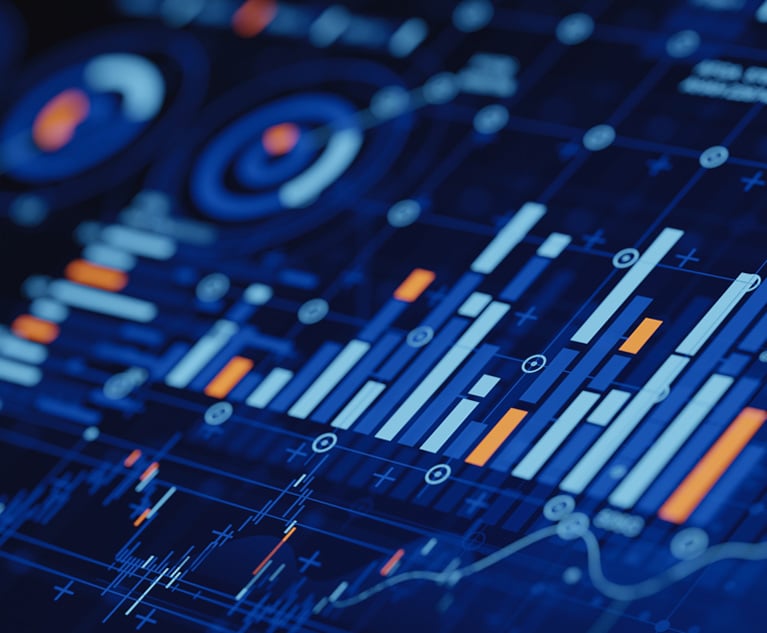
Want to get this daily news briefing by email? Here's the sign-up.
|
WHAT WE'RE WATCHING
INTO THE FRAY – In this week's Law.com Barometer, Gina Passarella explores how many law firms face pressure from their clients, employees and the general public to take a stand on a host of political and social issues. But doing so can come with far reaching consequences. When Sidley Austin announced it would reimburse the travel costs of Texas emplyoees seeking an abortion, for instance, it caught the ire of the Texas Freedom Caucus, who threatened legislation that would sanction firms with such policies. To be sure, the role firms play in a divided society will go far beyond abortion. And increasingly for firms, taking a stand on these issues isn't just about being advocates, but also about setting an example as businesses and leaders as well.
FIRMS' INTERNAL DIVIDE – As law firms try to deftly navigate contentious social issues, it's not politicians they worry about offending—it's their own partners and attorneys. Dan Roe reports that internal divisions are causing headaches for firms that find themselves having to take a stance on hot button issues. Even before Roe V. Wade was overturned, firms had to manage how to handle the aftermath of the 2020 election, with some turning down post-election related work, and others eventually dropping election-related clients after their attorneys headed for the exits. Firms' stance on social and political issues are garnering more attention in part because of the persistence of remote work arrangements. Where in the past, in-office relationships would largely drive a firm's culture, now a firm's stated priorities are playing a bigger defining role.
YOU CAN BE A CYBER LAWYER – With cybersecurity practices growing, there's high demand for those well versed in cyber law. But there's one big factor preventing some from jumping into the field: the perception that cybersecurity lawyers need a lot of tech skills and acumen. As Cassandre Coyers reports, while such a perception can be perpetuated by unrealistic and overly technical job descriptions, in reality, cybersecurity law would benefit from those with a range of talent—whether they're "techies" or not. After all, what matters more than whether someone can code or understand cryptography is their grasp of the specific law at hand. Cybersecurity attorney demand, however, may ease in the future as cybersecurity law becomes an increasingly popular area for those just starting out their legal careers.
|
EDITOR'S PICKS
This content has been archived. It is available through our partners, LexisNexis® and Bloomberg Law.
To view this content, please continue to their sites.
Not a Lexis Subscriber?
Subscribe Now
Not a Bloomberg Law Subscriber?
Subscribe Now
NOT FOR REPRINT
© 2025 ALM Global, LLC, All Rights Reserved. Request academic re-use from www.copyright.com. All other uses, submit a request to [email protected]. For more information visit Asset & Logo Licensing.
You Might Like
View All
The Week in Data Jan. 2: A Look at Legal Industry Trends by the Numbers

Chair of Montgomery McCracken Decamps for Morgan Lewis

Patent Disputes Over SharkNinja, Dyson Products Nearing Resolution
Law Firms Mentioned
Trending Stories
Who Got The Work
Michael G. Bongiorno, Andrew Scott Dulberg and Elizabeth E. Driscoll from Wilmer Cutler Pickering Hale and Dorr have stepped in to represent Symbotic Inc., an A.I.-enabled technology platform that focuses on increasing supply chain efficiency, and other defendants in a pending shareholder derivative lawsuit. The case, filed Oct. 2 in Massachusetts District Court by the Brown Law Firm on behalf of Stephen Austen, accuses certain officers and directors of misleading investors in regard to Symbotic's potential for margin growth by failing to disclose that the company was not equipped to timely deploy its systems or manage expenses through project delays. The case, assigned to U.S. District Judge Nathaniel M. Gorton, is 1:24-cv-12522, Austen v. Cohen et al.
Who Got The Work
Edmund Polubinski and Marie Killmond of Davis Polk & Wardwell have entered appearances for data platform software development company MongoDB and other defendants in a pending shareholder derivative lawsuit. The action, filed Oct. 7 in New York Southern District Court by the Brown Law Firm, accuses the company's directors and/or officers of falsely expressing confidence in the company’s restructuring of its sales incentive plan and downplaying the severity of decreases in its upfront commitments. The case is 1:24-cv-07594, Roy v. Ittycheria et al.
Who Got The Work
Amy O. Bruchs and Kurt F. Ellison of Michael Best & Friedrich have entered appearances for Epic Systems Corp. in a pending employment discrimination lawsuit. The suit was filed Sept. 7 in Wisconsin Western District Court by Levine Eisberner LLC and Siri & Glimstad on behalf of a project manager who claims that he was wrongfully terminated after applying for a religious exemption to the defendant's COVID-19 vaccine mandate. The case, assigned to U.S. Magistrate Judge Anita Marie Boor, is 3:24-cv-00630, Secker, Nathan v. Epic Systems Corporation.
Who Got The Work
David X. Sullivan, Thomas J. Finn and Gregory A. Hall from McCarter & English have entered appearances for Sunrun Installation Services in a pending civil rights lawsuit. The complaint was filed Sept. 4 in Connecticut District Court by attorney Robert M. Berke on behalf of former employee George Edward Steins, who was arrested and charged with employing an unregistered home improvement salesperson. The complaint alleges that had Sunrun informed the Connecticut Department of Consumer Protection that the plaintiff's employment had ended in 2017 and that he no longer held Sunrun's home improvement contractor license, he would not have been hit with charges, which were dismissed in May 2024. The case, assigned to U.S. District Judge Jeffrey A. Meyer, is 3:24-cv-01423, Steins v. Sunrun, Inc. et al.
Who Got The Work
Greenberg Traurig shareholder Joshua L. Raskin has entered an appearance for boohoo.com UK Ltd. in a pending patent infringement lawsuit. The suit, filed Sept. 3 in Texas Eastern District Court by Rozier Hardt McDonough on behalf of Alto Dynamics, asserts five patents related to an online shopping platform. The case, assigned to U.S. District Judge Rodney Gilstrap, is 2:24-cv-00719, Alto Dynamics, LLC v. boohoo.com UK Limited.
Featured Firms
Law Offices of Gary Martin Hays & Associates, P.C.
(470) 294-1674
Law Offices of Mark E. Salomone
(857) 444-6468
Smith & Hassler
(713) 739-1250









